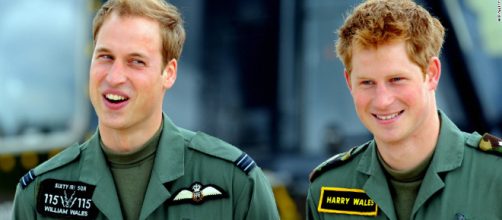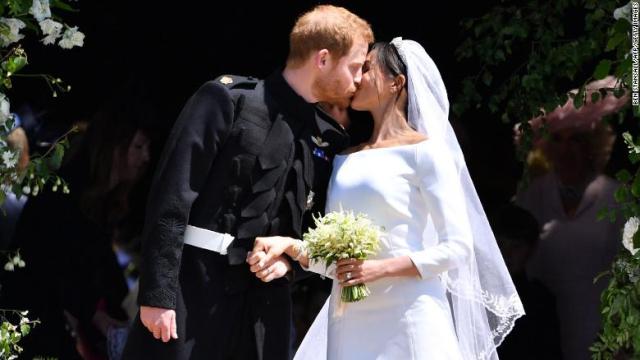Royal weddings over the years have been of great interest to the British public. The royal family keep themselves private, except for public events, or of course, their weddings. It has become an exciting moment to put on the calendar, as the public receives a glimpse into how the royal's do things. As well as many wondering if they will get a day off to watch.
The following ratings are reflective of viewership on the BBC and ITV - a fair way to compare thirty years of marriages. As for the earlier weddings, there were no social media or streaming services so it is also only a comparison of royal brothers, and those that were broadcast meaning the Queen and Duke of Edinburgh are not on the list.
First born at the top
The royal wedding of Prince Charles and his first wife Diana Spencer drew in 28.4 million viewers. These ratings come from both the BBC with 19.4 million and ITV with 9.0 million. This royal wedding took place in 1981 and still remains the top-rated wedding since by a significant margin of 10 million viewers.
The since declining ratings of royal wedding viewers, could be a reflection of the royal family's significance to the British public. It was also the wedding of a future King, another reason for people to want to watch. This wedding would have held more significance than other royals, who were further down the line as heirs to the throne.
The second son comes in second
The Queen's second son Prince Andrew, The Duke of York lost out to his elder brother with a notable difference. In 1986 he married Sarah Ferguson whom he later divorced in 1996. But on their big day, the couple received a viewership of 18.7 million views. The BBC again had the most viewers with 12.5 million compared to the 6.2 million of those who watched on ITV.
Marrying just five years after his eldest brother, and future King Prince Charles. The large viewership shows the early change in public opinion, that has continued over the last thirty years. These ratings also come from a time, without the pressures or distractions of social media. So, the royal family's involvement in public life would have been more significant.
Another heir takes top spot
Prince William's marriage in 2011, to his wife Catherine Middleton, was just less than a million viewers short of his uncle Prince Andrew. Past royal weddings had shown a decline, but the wedding of the third in line to the throne was an exception. This wedding received a combined viewership of 17.6 million viewers. A split between 13.6 million BBC viewers and only 4 million watching on ITV. Making Prince William third in line and third in royal wedding ratings.
Another reason for the high viewership of Prince William and Catherine's wedding could be that she was a commoner. The first to marry into the royal family, resulting in a great media buzz around her impending wedding to a royal.
The effects of social media meant her commoner status was shared quickly around the world and drew viewers in.
Wedding ratings reflect birth order
The youngest of the Queen's children and third son comes in next. His wedding to Sophie Rhys-Jones, who became the Countess of Wessex was watched by a combined viewership of 14.8 million viewers. The wedding took place in 1999, with ratings slanted towards the BBC with 9.3 million, compared to the lower viewership of ITV's 5.5 million.
Overall Prince Edward may be in fourth place, but when compared to his brothers he is third. A coincidence in that he is also the third brother. Prince Edward and Sophie's wedding could be a reflection of declining public feelings towards the royals.
When compared to previous ratings of the weddings just under ten years before his own, the viewership has halved.
Harry loses out to William
The most recent royal wedding is that of Prince Harry and Meghan Markle, who married in May of this year. Although the couple had a social media buzz around them, the wedding was only watched by a combined viewership of 11.5 million. Harry at the time of his wedding was sixth in line to the throne, and the intrigue of watching a future King marry was not relevant.
The viewership was split between the BBC's 8.9 million and ITV's 2.6 million. It is of course, not reflective of those who watched it live on YouTube. The lessening impact of the royal family on the British public could be a reflection of this, but the negative media around Meghan Markle may have led people away from watching the wedding.
Charles take last place
The heir to the throne also takes the last place. His second wedding to Camila Parker-Bowles was only viewed on the BBC receiving a small viewership of 7.4 million. Prince Charles' significance as future King may have played a part in these ratings. As well as the media buzz around the relationship between 'Charles and Camila'.
The wedding took place in 2005, just eight years after the death of his first wife Diana. Charles divorced from Diana in 1996 after it was known he'd had an affair with Camila. So public opinion of Prince Charles had changed since his first wedding, with some members of the British public turning against the Royals.




